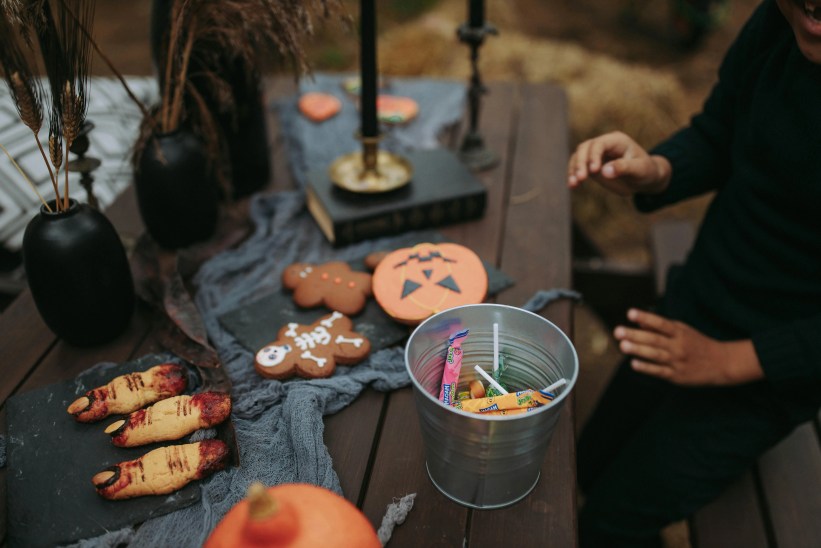
Navigating Halloween When Your Child Has Allergies
Being a parent of a child with allergies can be taxing, and holidays like Halloween can make navigating and avoiding allergens even more stressful.
There are so many festive events like class Halloween parties both in school and then afterward at extracurricular activities and afterschool sports. When you combine them with the inevitable vat of candy that comes from trick-or-treating, helping your child avoid their allergens can start to feel like a Herculean task.
As Halloween quickly approaches, the pressure to create a fun and memorable day for your child while also keeping them safe and healthy can be daunting. However, with a little planning, it is possible. Like with many things in parenting, preparation is key.
We sat down with Dr. Tania Elliott, a board-certified allergist and immunologist, and mom of four, to learn about how to best navigate Halloween and trick-or-treating when your child has allergies.
Read on for tips about safe trick-or-treating, how you can make sure your kids’ treats are free of allergens, being prepared for allergic reactions, and more.
Psst… Here are the best places for trick or treating on Long Island this year!
What are the most common food allergies that parents should be aware of on Halloween?
The most common food allergens around Halloween are peanuts, tree nuts, milk, eggs, wheat, soy, and sesame.
What steps can parents take to make sure Halloween treats are safe for their kids to eat?
Read the labels closely before your child eats anything. You can also check resources like FARE’s (Food Allergy Research & Education) website and apps like Spokin. It’s safest to avoid homemade treats where there’s not an ingredient label you can check.
For children with severe allergies, things like classroom parties and other Halloween fun can be difficult if they can’t eat what other kids are eating. How can parents navigate this?
Food allergies can definitely make Halloween even scarier than usual.
Talk to the school ahead of time to make sure everyone knows about your child’s allergies. Make sure their teachers and other school staffers are trained on how to recognize symptoms and signs of anaphylaxis and how to use an EpiPen.
Make sure there is an EpiPen for your child at school. If you can, offer to supply the Halloween treats yourself for the whole class, so you know they are definitely allergy-free.
How can parents safely introduce new candy to young children?
As long as the food doesn’t contain something they are allergic to, there is no reason to be afraid. In fact, delaying the introduction of foods can actually lead to the development of more food allergies.
For example, this is why it is recommended to introduce peanuts at 4 to 6 months of age versus waiting until the age of 2. Aside from allergies, the biggest safety risk with candy for all kids is actually choking hazards. So be sure to avoid small candies that are grape-sized or smaller.
If an allergic reaction were to happen during Halloween festivities, what should parents do? How can they prepare ahead of time?
Have an EpiPen on hand at all Halloween events that your child attends. Make sure it’s not expired and you know how to use it. Create an anaphylaxis action plan that outlines what to do if your child has an allergic reaction and make sure any adults supervising them have a copy.
Psst… Are you ready to make this Halloween the best one yet? Check out our all-inclusive Halloween Guide! From 10 last-minute costumes and local stores to pet parades and the best places for trick or treating in New York City, we’ve got you covered!



















